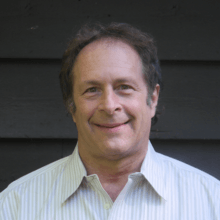Richard Elliot (Rick) Doblin is the founder and executive director at the Multidisciplinary Association for Psychedelic Studies (MAPS) in Santa Cruz, CA. He founded the association in 1986 to raise awareness and contribute to the understanding of psychedelic substances. Professionally, his goal is to, “…help develop legal contexts for the beneficial uses of psychedelics and marijuana, primarily as prescription medicines but also for personal growth for otherwise ‘healthy’ people.”
Early Career
Doblin earned his doctorate in public policy from Harvard University. It addressed the regulations surrounding the medical uses of marijuana and psychedelics.1 His master’s thesis analyzed oncologist’s attitudes and experiences about using marijuana for nausea control in cancer patients.2 The work was published in the Journal of Clinical Oncology. Before that, his undergraduate thesis written while attending the New College of Florida was published in the Journal of Transpersonal Psychology.3 For this research, Doblin did a 25-year follow-up to Walter Pahnke’s famous Good Friday Experiment. Also, Doblin did a 34-year follow-up study to Timothy Leary’s Concord Prison Experiment.4
In the acknowledgments section of his doctoral thesis, Doblin says Dr. Stanislav Grof inspired him and he built his professional life around Grof’s theoretical work and research. Doblin goes on to give an eloquent summary of his past and what drives him to investigate the psychedelics. “In 1972, I conscientiously objected to President Nixon’s War on Drugs and decided to embark upon a career as an underground psychedelic psychotherapist. I hoped that psychedelic psychotherapy would empower me, and by extension others, to address deep-seated fears, mitigate projection and scapegoating, and provide access to profound feelings of connection and unity. I believed that psychedelics used wisely would enable us an [sic] individuals and collectively as a society to develop a sense of core identity that transcended divisive distinctions based on national origin, religion, race, gender, class and political orientation.” 1
Research on LSD and MDMA
For the last several years, Doblin has been studying 3,4-methylenedioxymethamphetamine (MDMA, also known as ecstasy)-assisted psychotherapy for the treatment of post-traumatic stress disorder (PTSD).5–9 In 2012, his team published a follow-up paper for one study. The analysis showed most of the 19 study subjects with chronic PTSD being treated with MDMA-assisted psychotherapy still experienced symptomatic relief up to 74 months from the conclusion of the study.5 Also, none of the subjects reported any harm from taking part in the study.
Recently, Doblin and his team investigated MDMA-assisted psychotherapy to help military veterans, firefighters, and police officers suffering from PTSD.10 They conducted a randomized, double-blind, dose-response phase 2 trial of 26 first responders with chronic PTSD for 6 months or more. The study found that active doses of 75 mg and 125 mg of MDMA along with psychotherapy were effective in reducing their PTSD symptoms. The researchers also reported that the doses were well-tolerated by study subjects.
In 2014, Doblin worked with a team of researchers on a double-blind, randomized, active placebo-controlled pilot study using lysergic acid diethylamide (LSD)-assisted psychotherapy.11 The study looked at treating anxiety in 12 people facing life-threatening diseases. At the end of the study, the subjects experienced significantly reduced anxiety and had no acute or chronic adverse effects beyond day 1 of the study. Doblin and the team concluded the study results call for larger controlled studies.
Doblin participated in a 2017 study to help understand the mechanism of MDMA-assisted psychotherapy.9 The results showed a moderating effect between increased openness and the reduction of PTSD symptoms using MDMA. When coupled with psychotherapy, MDMA increased openness and decreased neuroticism in the study subjects. The authors propose the effects of MDNA extend beyond helping with PTSD symptoms. They suggest MDMA, “…fundamentally alters personality structure, resulting in long-term persisting personality change.”
Doblin’s life is profiled in Washington Post Editor Tom Shroder’s 2014 book “Acid Test: LSD, Ecstasy, and the Power to Heal.”
More information on Rick Doblin is found in his LinkedIn profile and the MAPS website.

